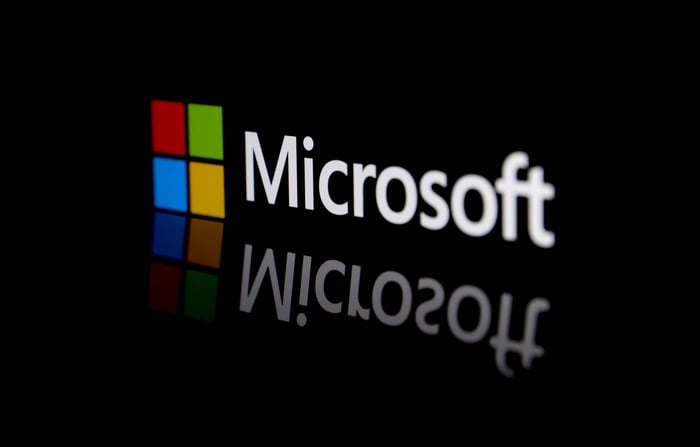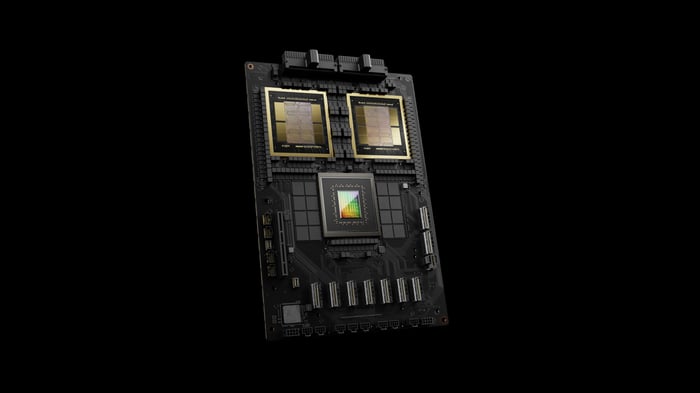Insights into Bill Gates’ Foundation Portfolio: Key Holdings Revealed
Bill Gates stands out as one of the world’s most recognized billionaires. His wealth skyrocketed in the late 1990s as Microsoft (NASDAQ: MSFT) emerged as the most valuable company globally. Gates’ net worth exceeded $100 billion in 1999, marking a milestone 18 years before anyone else achieved this level of wealth. By 2000, he transitioned from CEO of Microsoft to focus on philanthropy, establishing the Bill & Melinda Gates Foundation by merging three previous family foundations.
As of now, the Gates Foundation oversees a trust with a publicly traded portfolio valued at approximately $45 billion. This portfolio includes 25 stocks, many of which were donated from Gates’ personal investments. Notably, about two-thirds of the portfolio is concentrated in just three key stocks.
1. Microsoft (29% of Assets)
It’s no surprise that Microsoft’s own stock constitutes the largest portion of the foundation’s portfolio. Gates initially seeded the foundation with $5 billion worth of Microsoft stock in 2000 and has continued to donate shares, adding another $5 billion in 2022. As of the latest reports, the foundation holds around 28.5 million shares valued at about $13 billion.
Microsoft has capitalized on the increasing investments in artificial intelligence (AI). Its early backing of OpenAI has positioned Azure, Microsoft’s cloud computing platform, as a prime choice for developers interested in leveraging AI advancements.
The cloud computing sector has experienced significant growth over the past two years, with Microsoft reporting that it is capacity-constrained in its AI computing resources despite substantial investments. According to the company’s recent quarterly earnings, Azure’s fiscal Q3 revenue climbed 33% year over year, with AI services contributing to roughly half of that growth. The enterprise software segment has also flourished, particularly due to enhancements in its Copilot AI platform that aids software development, healthcare, and gaming sectors.
Although Microsoft’s forward P/E ratio of 34 is significantly above the market average, its leadership in AI and robust share repurchase program indicate its valuation is justified. Consequently, it is likely to remain a cornerstone in the Gates Foundation’s portfolio for the foreseeable future.
2. Berkshire Hathaway (19%)
Gates has maintained a long-standing friendship with Berkshire Hathaway (NYSE: BRK.A) (NYSE: BRK.B) CEO Warren Buffett. Gates served on Berkshire’s board from 2004 to 2020, while Buffett acted as a trustee for the Gates Foundation from 2006 to 2021. Each summer, Buffett donates Berkshire Hathaway Class B shares to the foundation.
As of the end of the first quarter, the Gates Foundation retained just over 17 million shares, valued at approximately $8.7 billion. The foundation has begun to sell some shares to help fund operations and grants, following Buffett’s stipulation that the foundation must utilize the full value of his donations plus an additional 5% of its assets.
Despite recent share sales, holding a considerable number of Berkshire shares has benefited the foundation. The diversified holding company has seen its value rise significantly, benefiting from a robust stock portfolio and profitable operating businesses.
In recent years, Buffett has strategically reduced certain large equity holdings as valuations increased. The resulting cash from these sales, combined with profits from Berkshire’s operations, has uplifted its cash reserves to an impressive $347.7 billion, creating some investor concerns amidst current market uncertainty. Nevertheless, this liquidity offers safety to those trusting in Buffett’s investment strategies.
That said, Berkshire’s stock currently trades at a price-to-book ratio of around 1.7, which exceeds its historical average, indicating some expense. However, with a substantial cash reserve, the company warrants a premium relative to its book value due to Buffett’s proven track record.
3. Waste Management (17%)
Waste Management (NYSE: WM) ranks among the longest-held stocks in the Gates Foundation trust. It represents the type of stable, recession-resistant business that constitutes a significant portion of the portfolio outside of Microsoft. Waste Management’s competitive advantages include its dominant landfill position and broad market presence.
At the end of March, the foundation held just over 32 million shares, worth approximately $7.5 billion. The primary strength of Waste Management lies in its operational capacity, as regulatory hurdles make it difficult for new competitors to enter the market. The company has expanded through acquisitions, including the recent purchase of Stericycle, which is now part of WM Healthcare Solutions. Management anticipates extracting $250 million in synergies from this acquisition while leveraging cross-sales to boost growth.
Currently, the recent acquisition has placed slight pressure on Waste Management’s operating margin, which decreased by 2 percentage points year over year to 27.7%. The new healthcare division has shown a margin of just 12.3%, alongside a minor contraction in the core business.
# Waste Management Projects Margins to Return to 30% Amid Growth
The margins for Waste Management are expected to approach 30% as the company leverages synergies, expands its business, and raises pricing in its legacy segments.
Currently, Waste Management holds an enterprise value of approximately 15.5 times the company’s projected earnings before interest, taxes, depreciation, and amortization (EBITDA) for 2025. This valuation appears reasonable, particularly when compared to competitors who are priced higher despite facing declining volumes.
Considering Investment in Microsoft?
Before making an investment in Microsoft, here are some key points to consider:
The *Motley Fool Stock Advisor* analyst team has identified what they believe to be the 10 best stocks for investors to consider at this time—Microsoft is not among them. The highlighted stocks are anticipated to deliver significant returns in the years ahead.
For example, when Netflix was recommended on December 17, 2004, an investment of $1,000 would now be worth $642,582* if you had taken the advice. Similarly, an investment of $1,000 in Nvidia when it was recommended on April 15, 2005, would be valued at $829,879* today.
It’s noteworthy that *Stock Advisor* reports an average return of 975%, significantly outperforming the 172% return of the S&P 500. Stay updated on their latest top 10 recommendations by joining *Stock Advisor*.
* *Stock Advisor returns as of May 19, 2025
Adam Levy has positions in Microsoft. The Motley Fool has positions in and recommends Berkshire Hathaway and Microsoft. The Motley Fool recommends Waste Management and suggests long and short options on Microsoft. For more details, refer to the Motley Fool’s disclosure policy.
The views and opinions expressed herein are those of the author and do not necessarily reflect those of Nasdaq, Inc.




